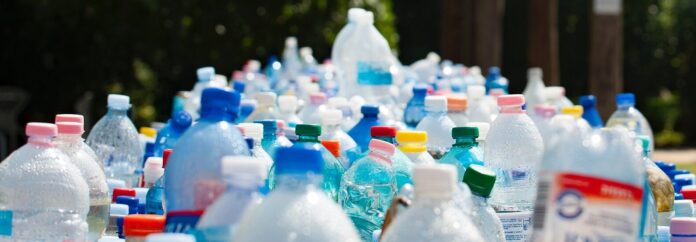[ad_1]
While most of us have been focusing on goals related to decreasing CO2 levels in the atmosphere, a subset of scientists have been eying another villain. Now word from the Plastic Health Summit 2021 is that we have nine years to save the world from irreparable plastic-wrought damage.
Continue reading below
Our Featured Videos
Plastic Soup Foundation organized the one-day summit, held last Thursday, Oct. 21 in Amsterdam. Maria Westerbos, director of Plastic Soup Foundation, demanded that the World Health Organization declare that plastic waste is a public health emergency. If we don’t act now, she said, the harm caused by plastic pollution — both to the planet and to human health — will be irreversible by 2030. Plastic Soup Foundation is based in the Netherlands. Its mission statement begins, “Stop the plastic soup tsunami as soon as possible!”
Related: Cleanup device removes 20,000 pounds of ocean plastic
“Through fragmentation, plastics and their additives enter the veins of the global ecosystems,” said Westerbos. “This has tremendous health repercussions for humans, animals, plants, and the environment. Plastic waste is the new asbestos.”
International experts came from many parts of the globe, including Malawi, Greenland, Indonesia, the U.S., U.K. and the Netherlands to present their plastic-related research and testimonials. Panels included: One Health about the interconnectedness of environmental and human health; Environmental Justice, which examined how pollution and vulnerable groups are hardest hit by adverse health effects of plastic pollution; and The Next Generation, which predicted possible scenarios for the people of 2030. A special exhibit called Plastic Justice involved students from art and design schools in The Hague, Reykjavík, Barcelona, London and Vilnius.
Plastic affects human health in myriad ways. Humans can be directly harmed by toxic elements in some plastics, such as mercury, cadmium and lead. The diethylhexyl phthalate (DEHP) found in plastics is a carcinogen. Scientists have linked other plastic toxins to birth defects, cancer, childhood developmental issues and damaged immune systems, according to the National Association of Geoscience Teachers.
“We urgently need to fund further research to understand the risk of plastic in our bodies and how to mitigate it,” said Jo Royle, founder and CEO of U.K.-based environmental organization Common Seas. “And we need government and business to step up to help us all reduce our exposure – today and in the future.”
Lead image via Pexels
[ad_2]
Source link














